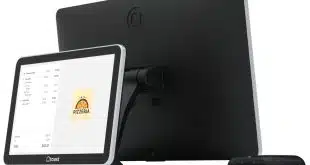By Jim Daly
@DTPaymentNews
Square Inc. reported Wednesday that its payment volume grew 42% in the second quarter to $12.5 billion, and, while still reporting a loss, the merchant processor edged toward profitability as its adjusted revenues jumped 54%.
Square, which began signing merchants in 2010, also raised its financial guidance. All of that pleased investors, who pushed San Francisco-based Square’s share price up by more than 14% in after-hours trading. The jump contrasted sharply with the punishment Wall Street meted out to Square three months ago, when the company’s quarterly net loss doubled to $96.8 million.
Square attributed the recent payment-volume and revenue increases to new merchants, which the company refers to as sellers, coming on board, and more product sales and volume at existing sellers. The second quarter’s gross payment volume (GPV) contrasted with $8.8 billion a year earlier.
Total net revenue, which includes Starbucks Corp., increased 41% to $439 million. Adjusted revenue, which excludes Starbucks—the coffee giant is switching its payments contract to JPMorgan Chase & Co.’s Chase Commerce Solutions unit—came in at $171 million, up 54%.
The second-quarter’s net loss of $27 million was a big improvement from the first-quarter loss, when the company set aside $50 million for a lawsuit settlement, and slightly better than the $30 million loss in 2015’s second quarter. And adjusted earnings before interest, taxes, depreciation, and amortization (EBITDA) came in at $13 million, representing a 7% margin on adjusted revenues, versus $1 million in EBITDA and a 1% margin a year ago.
“Our expectation is that you’ll continue to see solid margin expansion from Square,” chief financial officer Sarah Friar said in a conference call with analysts.
As a percentage of GPV, transaction revenue came in at 2.93% in the second quarter while transaction profit was 1.04%, down slightly from 2.96% and 1.07%, respectively, a year earlier.
Excluding Starbucks, Square continues to get more of its GPV from bigger merchants. Sellers with $125,000 or less in annualized GPV, which would include Square’s original franchise of part-time sellers and tiny businesses, still produced 58% of GPV in the second quarter, but that was down from 70% a year earlier. Sellers with GPV of $125,000 to $500,000 generated 28% total volume, up from 24% a year ago, and those with more than $500,000 produced 14%, double that of last year.
Square extended $189 million in loans to sellers through its Square Capital program, up 123% from a year ago when the company offered a merchant cash-advance service. Some 60,000 merchants used Square Capital in 2016’s first half versus 70,000 for all of 2015, according to Friar.
Chief executive Jack Dorsey also said the company hasn’t been plagued with some of the problems that others in the merchant-acquiring industry have complained of as the U.S. switches to EMV chip card payments, including delayed certifications for EMV hardware and software systems.
“We haven’t been experiencing the challenges that our competitors are mentioning,” Dorsey said. “I think a big part of that is we really focused on the on-boarding experience, so that when you use Square, you don’t have to think about anything but making the sale.”
Square had expected Starbucks to be off its system by the end of the third quarter, but the transition “has been taking longer than anticipated,” Square’s earnings report says.





